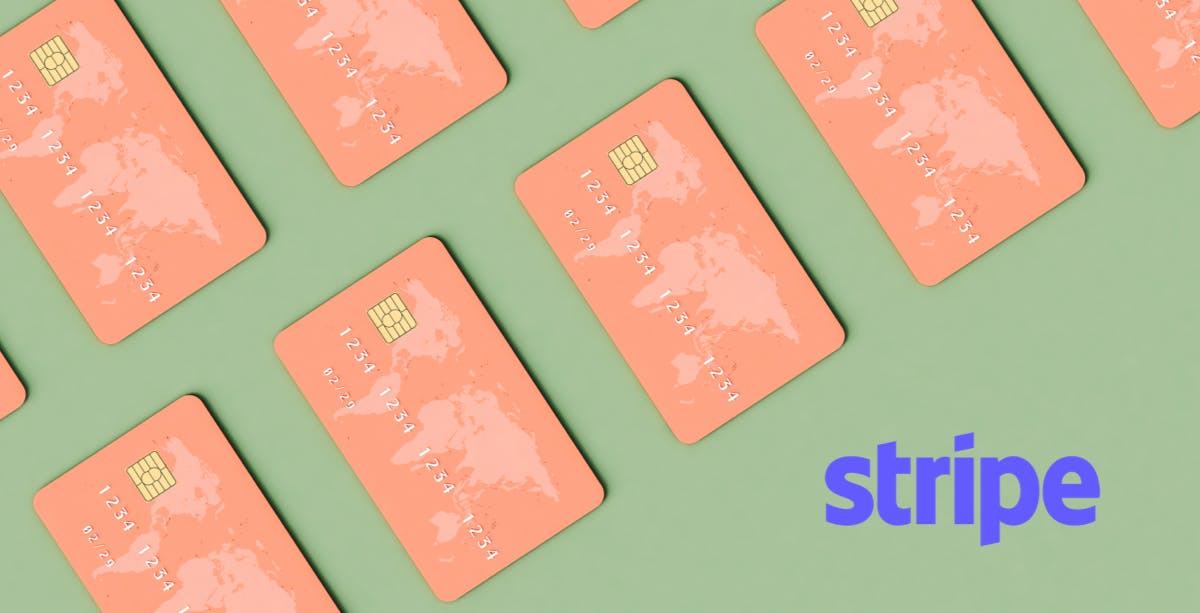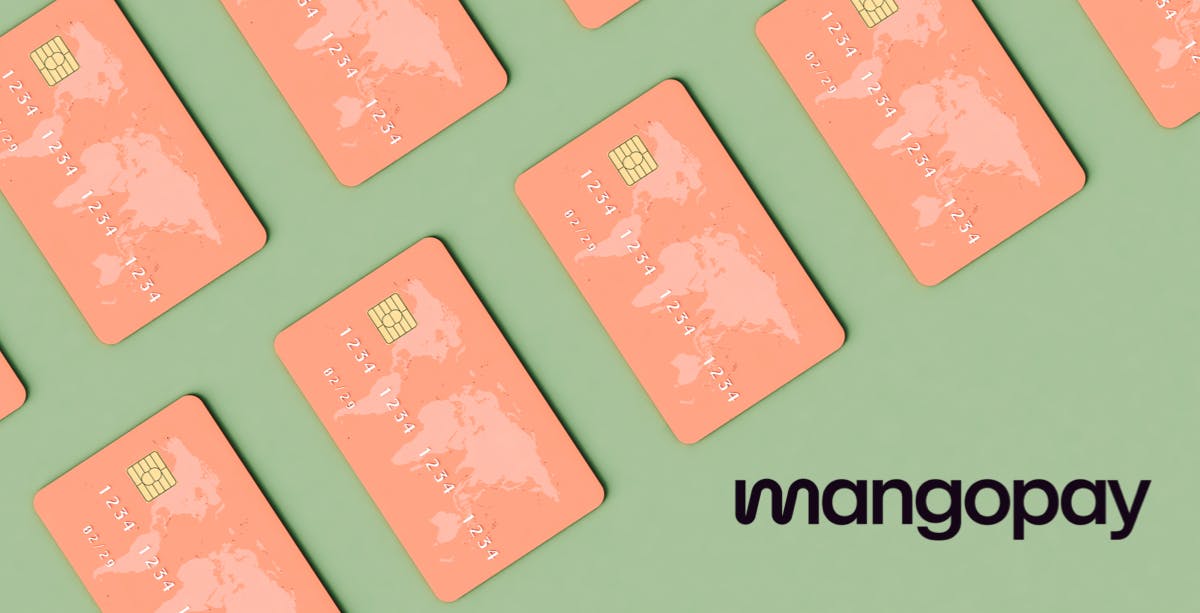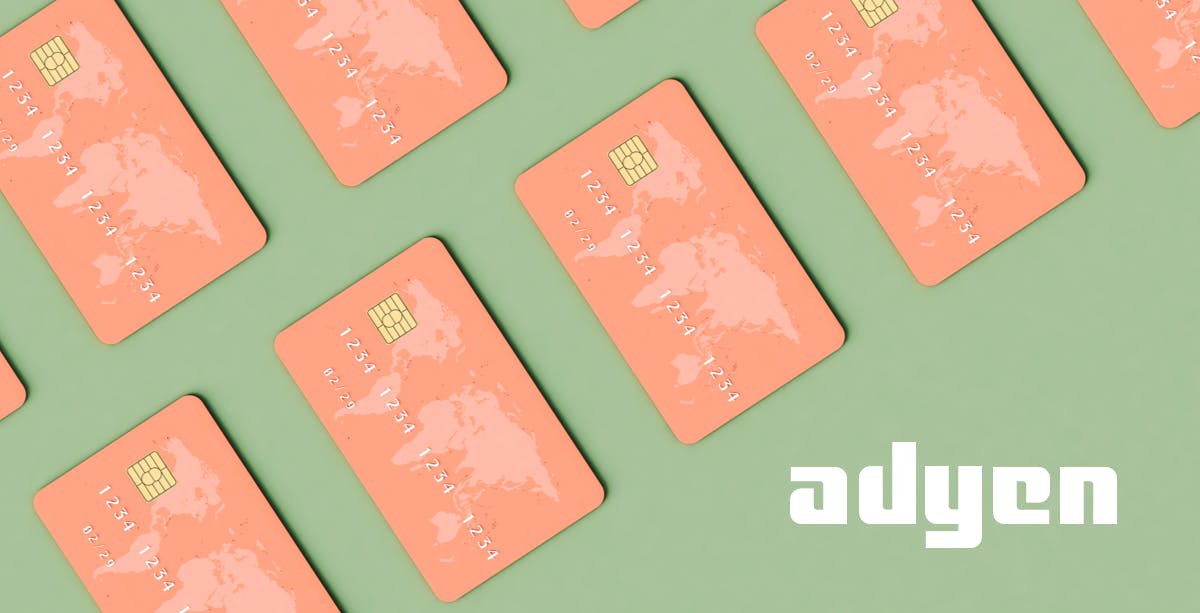Stripe marketplace payments – overview of Stripe Connect key features
Stripe Connect key features, fees, security compliance, integration and more.
Published on
Last updated on

When you're developing an online marketplace, choosing your marketplace payments provider is one of the first big decisions you must make. It sets the foundation for your entire marketplace business model, for reaching customers in your target markets, and for paying your sellers seamlessly.
Stripe Connect has become a go-to for powering payments on many top marketplaces. But is it the right fit for your business?
In this guide, we'll walk you through key features you need to evaluate if Stripe marketplace payments are ideal for your needs.
What's in this article:
- Background information on Stripe: Key figures, competitors, and well-known marketplaces using Stripe Connect.
- How Stripe Connect enables marketplace payments: How Stripe Connect and Stripe Connect account types work.
- Stripe Connect – key marketplace features: Countries and currencies, key payment flow features, and security tools.
- Stripe Connect pricing and some notes about our experience with their integration and support quality.
Stripe is a financial service and software as a service (SaaS) company. Founded in 2010 by brothers John and Patrick Collison, it provides APIs that developers use to accept payments, send payouts globally, and manage business operations online.
Stripe is now one of the largest payment processing companies globally and facilitates hundreds of billions of dollars of transactions every year.
Here are some key metrics to help you know more about Stripe as a company:
- In just one year, their valuation almost tripled, moving from $36 billion in April 2020 to $95 billion by April 2021.
- In 2022, Stripe's transaction value was estimated at $817 billion. An increase of 26% from 2021, when it was $640 billion.
- Today, 2.84 million live websites use Stripe, and more than 100 Stripe customers each process over $1 billion every year.
- Stripe has raised over $2.2 billion from investors.
- The company has over 5,000 employees globally.
- Stripe has acquired 14 companies so far.
There's lots of competition in the online payments space – there are hundreds of online payment providers out there.
In the specific area of online marketplaces, solutions competing with Stripe Connect include:
- Mangopay (here's our complete overview of Mangopay's marketplace payments)
- Adyen for Platforms (overview of Adyen's marketplace payments)
- PayPal for Marketplaces (overview of PayPal's marketplace payments)
- Trustap (overview of Trustap's marketplace payments)
- Ryft (overview of Ryft's marketplace payments)
- Fondy (overview of Fondy's marketplace payments)
This article helps you compare the different marketplace payment solutions.
Since 2012, many successful companies have adopted the Stripe marketplace payments system.
Here are some well-known ones using Stripe Connect:
- Lyft (ride-hailing)
- X (Social media app)
- Instacart (grocery delivery)
- DoorDash (food delivery)
- GitHub Sponsors (developer funding)
- TaskRabbit (task matching platform)
- Handy (task matching platform)
- Kickstarter (crowdfunding platform)
Stripe Connect is also the only marketplace payment provider that is available out of the box in Sharetribe’s marketplace builder and used by hundreds of marketplaces powered by Sharetribe. (Sharetribe lets you to build a custom integration to any third-party payment provider you want, so some of our customers use other payment providers.)
Stripe launched Stripe Connect in 2012 as a 3rd-party payment gateway, to provide tailored payment solutions for online marketplaces and platforms.
While Stripe offers general payment processing through their core product, Stripe Connect specifically meets the needs of marketplaces. The platform facilitates transactions between multiple parties, verifies identities, and routes funds securely.
Here are some of the key functions of Stripe Connect:
- Handling payments between buyers, sellers, and platforms, eliminating the need for off-platform payments.
- Identity verification to easily onboard new sellers and help prevent marketplace financial crime and fraud.
- Payouts to transfer funds instantly to seller bank accounts in over 135 currencies.
- Tools to manage growth, including revenue sharing, compliance, data insights, and more.
When using Stripe to power your marketplace payments, every seller on your marketplace must create a Stripe account. A seller creates a Stripe account when they sign up to your marketplace.
Stripe Connect offers three different account types for this purpose.
Stripe Connect has three different types of accounts: Standard, Express, and Custom. They have important differences, in terms of country support, payment flow, integration, and fees.
The Standard account type is the easiest and quickest to integrate, but it offers the least customizability. Stripe handles the onboarding and identity verification processes, and your users will mostly communicate with Stripe in account creation and payment flow. Stripe recommends this type to platforms with experienced online businesses as users.
The Express account type works for most marketplace types. While Stripe handles the onboarding and identity verification processes for Express accounts, your users primarily interact with your marketplace, particularly for the core payment processing functionality.
The Custom account type allows you to create a completely white-label payment experience – Stripe can be almost completely invisible to your users. This means a larger integration effort, and Stripe only recommends this type to businesses with significant engineering resources. To decrease the integration effort and eliminate the need to update your onboarding when payment requirements change over time, Stripe recommends using Connect Onboarding to collect onboarding and verification information from your users.
Stripe has comprehensive documentation to help you compare the account types.
In Sharetribe, we offer a pre-built integration to Stripe Connect with Custom accounts, with Connect Onboarding. (However, you can build an integration to any third-party payment provider you want.)
What makes Stripe marketplace payments different from other marketplace payment providers?
Every marketplace payment provider has their strengths and weaknesses. Stripe excels in offering several features tailored specifically for online marketplaces and has great features for subscription billing. The platform is developer-friendly and easy to integrate. Stripe’s list of supported countries is, however, rather limited, and their fee structure isn’t on the most affordable end.
We’ll discuss more on each of Stripe Connect’s key features below.
The first thing to consider when choosing Stripe Connect is your sellers' location as well as yours, the marketplace founder.
Stripe Connect is available for marketplace operators and sellers in 46 countries, including the United States, Canada, much of Europe, Australia, New Zealand, Singapore, Hong Kong, Nigeria, Kenya, and more. Compared to PayPal's list of 200+ supported countries, this can be a considerable limitation.
Furthermore, Stripe Connect doesn’t support all of the account types (Standard, Express, Custom) in all countries. Stripe lists its supported countries for each account type here.
Stripe does not yet support India, China, Russia, or most countries in Latin America and Africa. So, when choosing Stripe Connect as your market payment, ensure they cover your desired geography.
If your desired country isn't on Stripe's list, check out our marketplace payment provider comparison for more companies to consider.
❗️For a comprehensive list of the countries supported by Stripe that are available without custom coding in Sharetribe, check out Sharetribe's Help Center article on countries and currencies supported by Stripe.
Compared to Mangopay, which supports 15 currencies, and Paypal for Marketplaces, which supports only 25 currencies, Stripe Connect can send payouts to seller bank accounts in over 135 currencies. These include major currencies like USD, EUR, GBP, CAD, AUD, and SGD.
Payment methods are how customers pay after buying your product or using a service. Stripe supports different payment methods that fit local country preferences. This includes:
- Credit and debit cards
- Bank debits and transfers
- Wallet
- Affirm
- Afterpay
- Klarna payment options
- International payment methods.
- PayPal is mentioned on Stripe’s website as “Request access.”
For card payments, your customers can use all major ones like Visa, Mastercard, American Express, Maestro, JCB, Discover, and others.
Also, Stripe allows popular local payment methods like iDEAL in the Netherlands, Bancontact in Belgium, SOFORT in Germany & Austria, and more. This localization is a key strength compared to some other providers.
Moreover, the bank method allows your customers to pay directly from their bank accounts without having to enter card details, reducing the chances of payment errors.
Also, the various options of Stripe marketplace payments allow you to support your customers' payment preferences globally.
❗️For a comprehensive list of the currencies supported by Stripe that are available without custom coding in Sharetribe, check out Sharetribe's Help Center article on countries and currencies supported by Stripe.
A key necessary feature for your marketplace is being able to split payment transactions between you as the platform owner and the seller. This is essential if you want to monetize through commissions—arguably the most scalable marketplace business model.
Sometimes, you might even want to offer a part of the payment to reward a referral.
You can do this on Stripe Connect. Your marketplace can take its cut while paying out sellers—all within a single payment flow. This simplifies your operations compared to off-platform payments and manual splitting.
This is how it works.
Let's say a customer buys a branded shirt from a seller on your marketplace for $100. As the platform owner, you charge the customer $100 using Stripe. Through Stripe’s split payments feature, you could split the $100 with three parties, for example:
- $90 goes to the seller.
- $9 goes to you as a platform fee.
- $1 goes to another user as a referral fee.
No extra steps for the customer or need for off-platform transfers between parties. The split is handled automatically behind the scenes.
Also, split ratios are configurable per transaction. This allows you to set different revenue shares, commissions, or fees depending on the product, seller, or business model.
The ability to delay seller payouts or hold funds in escrow until certain conditions are met is critical for building marketplace trust. This protects against issues like fraud, non-delivery, or order disputes.
For example, Upwork, as a freelancing marketplace, has an escrow payment system where the client funds the project for which they hired freelancers. This ensures the client is satisfied before the payout, and at the same time, the freelancer is also paid.
Stripe doesn’t have the official license to offer escrow accounts but offers an identical functionality with a feature called delayed payout. By default, sellers receive funds instantly when a purchase is made. However, you can manually configure your marketplace to have delayed payouts, which hold funds directly within Stripe Connect for a set period before release—up to 90 days.
To configure delayed payouts:
- Specify a payout delay period on your Stripe dashboard or API to allow delayed payouts
- With the API, set “transfer_schedule[interval]” to manual. Stripe will hold funds in the account holder’s balance until told to pay out
- You can use the “Transfers” API to release held funds
That way, you can protect against issues between completed transactions and disbursed funds.
If your marketplace is powered by Sharetribe, the delayed payout is configured for you out of the box.
Some marketplaces rely on recurring subscription revenue models. Subscription payments are a monetization model in which users are charged a recurring fee (e.g., monthly or yearly) for access to products or services.
In the context of marketplaces, there are typically two scenarios where subscription payments come into play.
- Platform-level subscriptions: The marketplace charges recurring fees from its users—either from the sellers, the buyers, or both.
- Seller-initiated subscriptions: Individual sellers on the platform offer subscription-based products or services to buyers. The marketplace facilitates these recurring transactions, typically taking a commission from each payment.
Even though Mangopay also offers some subscription payment functionality, Stripe’s Billing feature (which is available for Stripe Connect users) is probably the best choice if subscription billing is a must-have feature. Stripe allows you to easily sign up users for recurring plans. This way, your customers are billed automatically on a defined schedule, whether weekly, monthly, annual, or custom intervals.
They offer subscription features like:
- Flexible billing models—charge per unit consumed, per seat, flat price, metered plans, etc.
- Promotional offers—free trials, discounts, and coupons.
- Multiple subscription methods—cards, bank accounts, alternate local methods.
- Automatic Payment retrying for failed payments to reduce churn.
- Email receipts and invoices to subscribers.
- Plan change—upgrade or downgrade subscription levels.
- Cancelation of individual subscriptions
- Webhooks to get notified about important subscription lifecycle events.
You can use these tools for both platform subscriptions and enabling your sellers to offer subscriptions.
For example, if you own an on-demand delivery platform, you could offer drivers flexible "rides" subscriptions. Or, like Airbnb, charge monthly installments for reservations over 28 days.
The API and dashboard controls make it easy to integrate necessary subscription features.
❗️Note that if you're using Sharetribe, you can monetize your marketplace through subscriptions with the help of user permission and automatization with Zapier. Find out more in this Help Center article on monetizing your marketplace with subscription fees.
Security and compliance are critical for any marketplace handling payments and user data. They must adhere to relevant laws, regulations, and industry standards regarding data privacy, security, and financial transactions.
Stripe has systems and certifications in place to ensure a secure payment environment. For Standard and Express accounts, the required information is collected by Stripe. Platforms using custom account users can whitelabel the process, but the platform is required to collect KYC information for the account holders of the account and submit that information using the Stripe API.
As Sharetribe offers a Stripe Connect integration with custom accounts, you can control when payout details are asked through Connect onboarding in the no-code builder. By default, payout details are required before any listing is published. However, you can disable this so that payout details can be added after a listing is published.
Due to Know Your Customer (KYC) obligations in payment processing, Stripe must collect and verify information about any person or entity receiving funds through their service. These requirements come from financial regulators and are intended to prevent financial fraud, such as online money laundering.
How Stripe ensures KYC compliance depends on your account type. For
Stripe is certified as a Level 1 PCI DSS-compliant service provider. This is the highest level of Payment Card Industry Data Security Standards certification.
PCI DSS are the global security standards for protecting cardholder data. Level 1 requires annual on-site audits and quarterly network scans from an independent qualified security assessor.
This means you can benefit from Stripe's PCI certification and security responsibilities. Your marketplace buyers' card data will never touch your marketplace's systems, which reduces compliance overhead for you.
Stripe marketplace payments infrastructure automatically handles encrypting data, tokenizing payment information, and managing PCI controls on behalf of your platform. This also offloads security responsibilities on your marketplace.
Stripe also supports the latest 3D Secure 2 (3DS2) protocol; where required, they authenticate transactions with Strong Customer Authentication (SCA) measures.
SCA is a requirement of the European Union's PSD2 regulation. It aims to reduce fraud through multi-factor authentication like biometrics, SMS codes, or security keys during checkout.
Stripe dynamically applies 3DS2 flows based on risk levels, user locations, and other factors. This helps increase authorization rates compared to older 3D Secure versions.
Beyond PCI and SCA, Stripe uses security controls across its system:
- Data encryption in transit and at rest
- Access control restrictions and auditing
- Regular third-party penetration testing
- Security monitoring and incident response
Stripe also complies with global data protection regulations like GDPR, provides SOC 2 Type II reports, and follows industry-standard security practices.
Overall, you can depend on Stripe to provide a secure, compliant payment infrastructure for buyers and sellers.
If your marketplace sellers earn a high enough income, you may be required to provide information on them to local tax officials.
Managing taxes can be a significant headache, especially when dealing with large volumes of sellers’ transactions. Stripe offers tools to simplify tax tasks and reduce much of the burden.
These tax solutions work seamlessly with all Stripe payment methods, including payment links, checkout, subscriptions, and invoices. You can also customize how tax information integrates into your payment processes using Stripe's tax services.
When sellers initially sign in to your marketplace, they can provide their tax ID information upfront. Stripe securely stores this data, along with details of all their transactions, allowing you to organize it for tax purposes.
Stripe uses this data, along with payment amounts, fees, payouts, and other relevant details, to automatically, calculate and collect the taxes you owe based on your marketplace's revenue, especially in the countries where you operate. This ensures the correct VAT and sales taxes are charged based on the buyer's location.
Stripe also has some helpful functionality you can offer your sellers, particularly if they are U.S. based and process large volumes. Stripe lets you automate the creation of 1099-K tax forms, which eliminates the need for you to prepare tax forms for each seller individually.
However, it is still essential to provide sellers with additional tax guidance and reminders regarding any tax obligations in their home country. Tax regulations vary greatly between different countries, so it’s important to double-check with your local authorities what your responsibilities are as a marketplace operator.
One key factor to consider when comparing marketplace payment platforms is the cost of operation. Stripe Connect pricing is based on your transaction volume, with no additional monthly fees.
As with most payment providers, Stripe’s fees vary between regions. Here is an overview of what Stripe-powered marketplace payments cost in the US and the European Economic Area (EAA):
- In the US, Stripe charges 2.9% + 30¢ per transaction for payment processing. This includes credit cards, wallets like Apple Pay, and local payment methods. In the EAA, the prices are 1.5% + €0.25.
- If you’re using Stripe Connect with Express or Custom accounts, Stripe charges a payout fee every time money is paid out from your Stripe account to your seller’s bank account. The fee is a combination of a percentage of the total payout value and a fixed fee. The exact numbers vary depending on the country of your bank account. Payout fees in the US are 0.25% + 25¢ and 0,25 % + 0,10 € in the EEA.
- If you’re using Stripe Connect with Express or Custom accounts, Stripe charges a fixed fee for every active Connected Account. A Connected Account is created in Stripe when a seller connects their bank details to the marketplace to start selling. A fee is charged for every Connected Account that is active within the month's period. An account is considered active in any month if it receives a payout from your marketplace. This fee varies depending on the country your account is located in and the currency that it settles. The fee in the US is US$2 and 2 € in the EEA per active account.
- Some additional extra fees apply. For example, in the US, entering cards manually costs 0.5%, using cards from other countries costs 1.5%, and currency conversion costs 1%. In the EAA, the fees are 2.5% + €0.25 for UK cards and 3.25% + €0.25 for international cards, and the currency exchange fee is 2%.
- Volume discounts are available to reduce the transaction fee, starting at 0.8% with high volume.
- Stripe charges an additional 1% fee for the instant payout fee (when required). This feature is not available in the EAA.
- For high-risk categories like cryptocurrency or sharing economy transactions, Stripe adds additional risk reserves of up to 10%.
- Stripe pricing is transparent with no hidden costs. All rates and reserves are clearly stated upfront.
Compared to alternatives, Stripe isn’t the most affordable solution, but also not on the most expensive end. For instance, while Mangopay requires an initial setup fee, its fixed fees for each transaction are lower. PayPal, on the other hand, charges from 3.49% plus a fixed fee of 9 cents for key transactions. Additionally, PayPal's international transaction fees are slightly higher than Stripe's (1.50% vs. 1%), with Stripe potentially adding a 1% currency conversion fee. However, Stripe may increase reserves for high-risk business categories.
Overall, Stripe is a cost-efficient choice for most high-growth marketplaces. Your marketplace can scale smoothly with transparent rates.
When choosing a marketplace payment provider, the quality of support and integration they offer is also important.
Stripe has a good reputation as one of the most developer-friendly payment platforms, and at Sharetribe, we can vouch for this based on our experience integrating Stripe into our marketplace builder. Stripe provides a smooth integration experience through comprehensive documentation and support.
Stripe’s technical documentation is generally very clear, in-depth, and up-to-date. Docs cover API usage, code samples, webhook events, and more. The content clearly explains how to solve common use cases like subscriptions, Connect, and Checkout. This enables your developers to ramp up quickly.
Stripe also offers product guides tailored for people without technical backgrounds, which explain key features and workflows from a business perspective.
Overall, Stripe documentation is detailed, thorough, and beginner-friendly.
Stripe's clean APIs and client libraries simplify payment, payout, and data management. Their intuitive design and SDKs hide unnecessary complexity, ensuring a smooth user experience. Compared to, for example, the notoriously difficult PayPal, Stripe clearly stands out as a developer-friendly solution.
They also offer useful developer tools like sample apps, prebuilt checkout UI, and debugging/logging to ease building. Test cards facilitate easy testing during development.
We've generally found the Stripe support team responsive and helpful. They offer 24/7 support through email, live chat (in English, German, and Japanese), and informative blog articles. Their support covers both technical implementation and questions on product usage.
However, since Stripe is a big organization, support quality can fluctuate, and this has also been our experience. It has happened that things have taken a wrong turn and we’ve ended up talking to multiple people who have given us answers that are vague or contradicting.
If you’re considering Stripe Connect to power your marketplace payments, it could be a good idea to contact their support with some questions and see how you feel about the responsiveness and quality.
Summary of Stripe’s marketplace payment features
As a leading payment processor handling billions of dollars annually, Stripe offers dedicated payment tools for building marketplaces through its Stripe Connect solution. These tools facilitate transactions between buyers, sellers, and platforms, including features like:
- Flexible split payments and payouts
- Delayed payouts (up to 90 days)
- Identity verification
- Recurring subscription management (integrated with Stripe's billing system)
- Global reach with support for local payment methods in over 46 countries
Stripe's pricing structure is also relatively competitive, offering 2.9% + $0.30 per transaction in the US and 1.5% + €0.25 in the European Economic Area, with volume discounts available. Integration is straightforward with Stripe's well-documented APIs, clean design, and various client libraries, catering to developer workflows.
From a security standpoint, Stripe is a Level 1 PCI DSS-compliant service provider, ensuring a secure and compliant platform for your marketplace. Their 24/7 live support and proactive monitoring further assist with onboarding and ongoing operations.
Overall, Stripe Connect is a compelling choice for marketplaces seeking a global reach and a user-friendly, secure platform.
More articles for you

Marketplace payments: The complete guide
Marketplace payments are very complex. This guide helps you list your feature requirements and compare and choose the best marketplace payment provider for you. (Yes, there's a comparison table!)

Mangopay marketplace payments – overview of key features
Are you considering Mangopay to power your marketplace payments? Here's a detailed overview of Mangopay’s marketplace payment features.

Adyen marketplace payments – overview of key features
Should you choose Adyen for your marketplace payments? Read this article to know Adyen's features, fees, supported currencies and countries, tax handling, & more.
Start your 14-day free trial
Create a marketplace today!
- Launch quickly, without coding
- Extend infinitely
- Scale to any size
No credit card required

